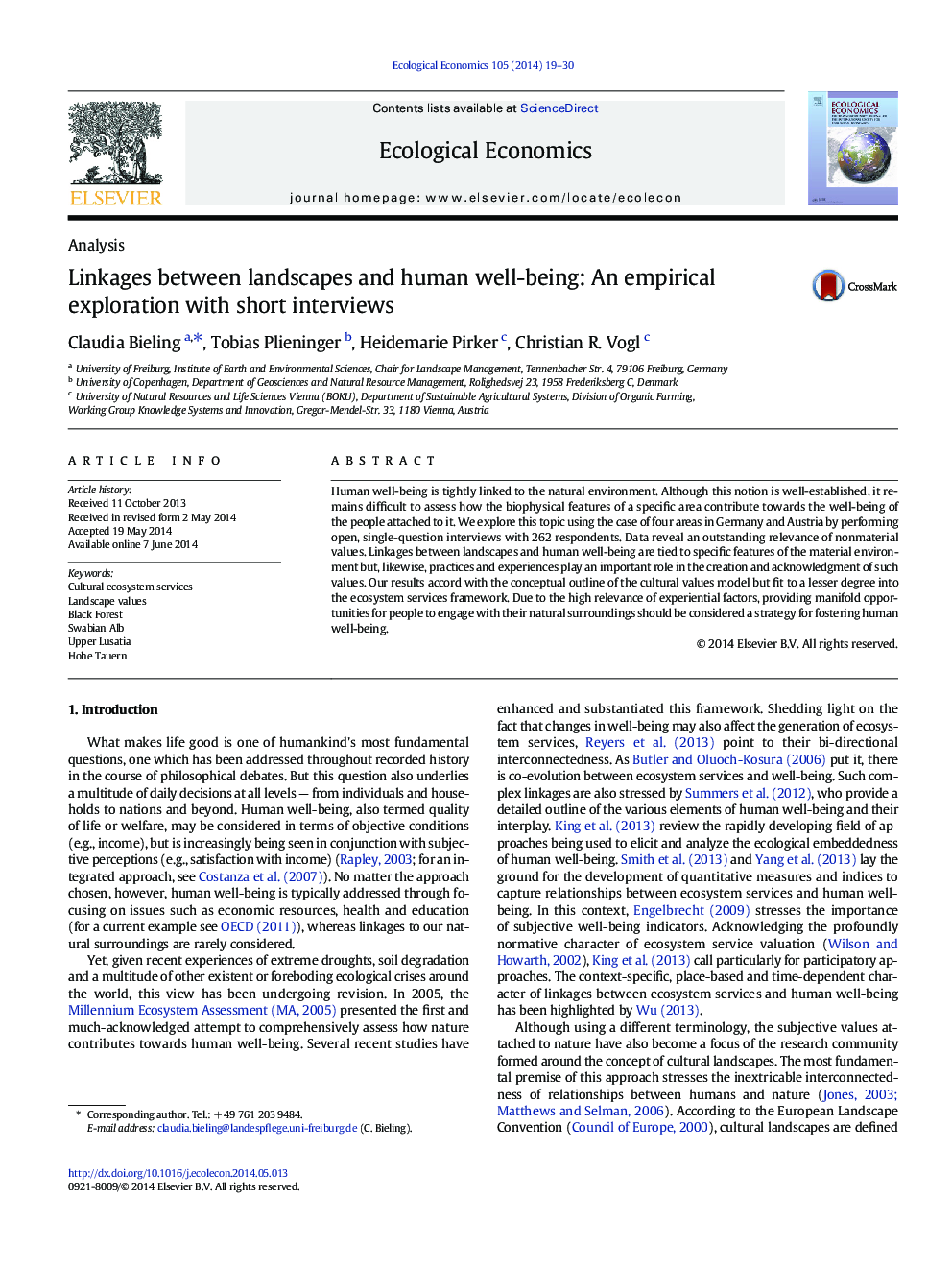| Article ID | Journal | Published Year | Pages | File Type |
|---|---|---|---|---|
| 5049700 | Ecological Economics | 2014 | 12 Pages |
â¢We explore perceived linkages between landscapes and human well-being.â¢Short interviews with 262 respondents in four study sites have been carried out.â¢Nonmaterial benefits and values play an outstanding role.â¢Practices and experiences are formative for perceived well-being.â¢Results fit with the cultural values model, less with the ecosystem services concept.
Human well-being is tightly linked to the natural environment. Although this notion is well-established, it remains difficult to assess how the biophysical features of a specific area contribute towards the well-being of the people attached to it. We explore this topic using the case of four areas in Germany and Austria by performing open, single-question interviews with 262 respondents. Data reveal an outstanding relevance of nonmaterial values. Linkages between landscapes and human well-being are tied to specific features of the material environment but, likewise, practices and experiences play an important role in the creation and acknowledgment of such values. Our results accord with the conceptual outline of the cultural values model but fit to a lesser degree into the ecosystem services framework. Due to the high relevance of experiential factors, providing manifold opportunities for people to engage with their natural surroundings should be considered a strategy for fostering human well-being.
